#certifiedtranslators
Text
Top Translators in Dubai - Expert Translation Services
Discover the top translators in Dubai, offering expert translation services across various languages. Our skilled professionals provide accurate and reliable translations for business, legal, and personal needs. Whether you require document translation, interpretation, or multilingual support, we ensure high-quality service tailored to your specific requirements. Trust our team of experts to deliver exceptional results and bridge language barriers effectively.
Call us at: +971 58 235 40 14

#TopTranslatorsDubai#DubaiTranslators#TranslationServices#ProfessionalTranslators#DubaiLanguageExperts#TranslationDubai#LanguageServicesDubai#CertifiedTranslators#DubaiBusinessTranslation#AccurateTranslation
0 notes
Text
Certified Translation Services| Certified Document Translation Services| Professional Document Translation Services| Birth Certificate Translation Services| Death Certificate Translation Services| Divorce Certificate Translation Services| Marriage Certificate Translation Services| USCIS Certified Translation Services|Traductor in Fort Lauderdale| Traductor Español Ingles| Traductor de Ingles a Español| Traduccion al ingles
Phone: 850-398-4645
Website: https://versatilelanguages.com
GMB: https://lnkd.in/dBEjgPYV
#Telephonic#interpreter#interpretation#birthcertificate#marriagecertificate#deathcertificate#divorcecertificate#uscis#DMV#certifieddocumenttranslation#certifiedtranslator#certifiedtranslators#certifiedtranslationservices#diplomatranslationservices#professionaltranslationservices#certified#translation#services#diploma#spanish#spanishtranslationservices#creole#french#Creoletranslationservices#frenchtranslationservices#spanishtranslator#frenchtranslation#frenchtranslator#traductor#uscistranslation
0 notes
Text
As Eugene Nida said, “Translating consists in reproducing in the receptor language the closest natural equivalent of the source language message, first in terms of meaning, and secondly in terms of style.”Are you ready to embrace new opportunities presented by diversified cultures and markets?
#translation#localization#services#business#startups#professionaltranslation#professionalservice#businessservices#websitelocalization#proofreading#editing#translator#certifiedtranslation#humantranslation
3 notes
·
View notes
Text
0 notes
Text
Navigating Embassy-Authorized Translations
In our globalized world, having accurate and legally recognized translations is crucial. Whether you're applying for a visa, seeking asylum, or involved in international business, ensuring your documents are translated correctly and meet official requirements is essential. This is where "Embassy-Authorized Translations" come into play.
Here’s a clear guide to understanding embassy-authorized translations, including their requirements, benefits, and potential challenges.

Why Embassy Authorization Matters
Embassies and consulates often require official translations of documents to verify their authenticity and accuracy. This is especially important for legal matters. Without an authorized translation, your application might be rejected, causing delays and frustration.
The Role of Certified Translators
Embassies usually need translations done by certified translators. These professionals are accredited by recognized bodies and have expertise in the specific language pair and document type. Certification ensures the translator meets high standards for accuracy, proficiency, and ethics.
How to Obtain an Embassy-Authorized Translation
The process can vary depending on the embassy, document type, and destination country, but generally includes the following steps:
Find a Certified Translator: Look for reputable agencies or individual translators who are certified and experienced with the language and document type you need.
Submit Your Documents: Provide the translator with the original documents and any specific instructions from the embassy or consulate, such as formatting and terminology.
Translation: The translator will carefully translate your document, ensuring accuracy and attention to detail.
Certification: After translating, the translator will add a certification statement confirming the accuracy of the translation and their qualifications.
Embassy Verification (If Required): Some embassies may require additional verification of the translation by a designated official or organization.
Key Considerations
Document Type: Different documents (e.g., birth certificates, passports, academic records) have specific translation requirements.
Language Pair: Ensure the translator is specialized in the specific languages needed, as some languages have complex nuances.
Accuracy and Clarity: The translation must be precise, clear, and error-free.
Terminology and Style: Use appropriate terminology and style for the document and its intended purpose.
Formatting and Layout: Follow the embassy’s formatting and layout guidelines for the translated document.
Common Pitfalls to Avoid
Unqualified Translators: Do not use translators who lack proper certification or experience.
Ignoring Embassy Requirements: Understand and follow the specific requirements of the embassy or consulate.
Inaccurate Translations: Ensure the translation is accurate to avoid rejection.
Missing Deadlines: Submit your documents and translations well before any deadlines.
Embassy-authorized translations are crucial for international communication and legal processes. By understanding the process, choosing qualified translators, and following embassy requirements, you can ensure your documents are accurately translated and smoothly processed. This helps avoid complications and ensures your applications proceed without issues.
#EmbassyAuthorizedTranslations#TranslationServices#CertifiedTranslation#LegalTranslations#DocumentTranslations
0 notes
Text
Why You Need to Hire a Sworn Translator for Your Legal Documents Instead of a Regular Translator

Translating legal documents is a task that demands precision, accuracy, and legal expertise. When it comes to ensuring the integrity and legality of your documents, hiring a sworn translator is essential. Here's why you should choose a sworn translator over a regular translator for your legal translation needs:
1. Legal Accuracy
Sworn Translators: Sworn translators have specialized knowledge of legal terminology and concepts. They understand the nuances of legal language and ensure that translations accurately convey the original meaning of the document.
Regular Translators: While regular translators may be proficient in general language translation, they may lack the specific legal expertise required for accurate legal translations.
2. Legal Validity
Sworn Translators: Sworn translators are authorized by a government authority to provide certified translations. Their translations are legally recognized and hold the same validity as the original document.
Regular Translators: Translations by regular translators may not be accepted by courts or legal authorities as they lack the official certification provided by sworn translators.
3. Official Certification
Sworn Translators: Sworn translators provide translations endorsed with their seal and signature, certifying the accuracy and authenticity of the document. This certification is often required for legal documents to be accepted by authorities.
Regular Translators: Translations by regular translators do not come with official certification, which may raise doubts about the accuracy and reliability of the translated document.
4. Knowledge of Legal Systems
Sworn Translators: Sworn translators are familiar with the legal systems and requirements of the countries involved. They ensure that translations comply with local laws and regulations.
Regular Translators: Regular translators may not have in-depth knowledge of legal systems, potentially leading to inaccuracies or discrepancies in the translation.
5. Confidentiality and Integrity
Sworn Translators: Sworn translators adhere to strict professional standards regarding confidentiality and integrity. They handle sensitive legal documents with the utmost discretion and professionalism.
Regular Translators: While regular translators may maintain confidentiality, sworn translators are bound by legal obligations and professional ethics, providing an added layer of security.
6. Trust and Reliability
Sworn Translators: Sworn translators are trusted professionals with the authority to provide certified translations. Their work is recognized and accepted by legal authorities, instilling confidence in the accuracy of the translated documents.
Regular Translators: While regular translators may offer quality translations, their work may not carry the same level of trust and reliability in legal contexts.

When it comes to legal documents, accuracy, legality, and reliability are paramount. Hiring a sworn translator ensures that your legal translations meet the highest standards and are legally recognized. While regular translators may be suitable for general translation tasks, when it comes to legal matters, investing in the expertise of a sworn translator is crucial to safeguard the integrity and validity of your documents.
#sworntranslator#legaltranslation#certifiedtranslator#legaldocuments#legaltranslator#courtinterpreter#legaltranslatorSG#legalservices#legalaid#legalassistance#legalexpertise#legalprofessionals#courtproceedings#documenttranslation#translatorlife#sworntranslation#legalinterpretation#immigrationtranslator#contracttranslation#notarialacts#officialcertification#legalaccuracy#legalvalidity#professionaltranslator#SingaporeTranslator
0 notes
Text
Certified Marriage Certificate Translation: Ensuring Legal Validity and Accuracy Across Borders
Certified marriage certificate translation is more than just converting documents from one language to another; it's about ensuring the legal validity and accuracy required to navigate international laws and regulations. Whether you are immigrating, marrying abroad, or simply need to formalize documents, understanding this process is crucial.
Understanding Legal Validity in Translations
Legal validity in translations isn’t simply about literal accuracy but maintaining the document's integrity in a way that is recognized by legal authorities across borders. This means that a certified translator must not only be proficient in both languages but also familiar with legal terminologies and practices in both jurisdictions.
The Process of Getting a Marriage Certificate Translated
Getting your marriage certificate translated involves several steps, starting from selecting a certified translation service to understanding the nuances of the required legal standards in the target country. This section would guide you through each step, ensuring clarity and compliance.
Regulations Governing Certified Translations Worldwide
This part of the article would delve into the various international regulations that impact the translation of official documents, with a focus on how these affect marriage certificates specifically. Understanding these can help avoid legal issues when using translated documents abroad.
Challenges Faced in Translation
From idiomatic expressions to legal jargon, translating a marriage certificate comes with its unique set of challenges. This section would explore these challenges in detail, providing insights and solutions to ensure accuracy and legality.
Technological Advancements in Translation
Explore how technology, especially AI, is changing the landscape of certified translations. While technology offers speed and convenience, the human element remains irreplaceable in ensuring the nuances of legal documents are correctly interpreted.
Case Studies of Translation Successes and Failures
Real-life examples can provide invaluable insights into the complexities of certified marriage certificate translation. This section would analyze both successes and failures to highlight best practices and common pitfalls.
Conclusion
Summarize the importance of ensuring legal validity and accuracy in certified marriage certificate translation and reflect on the future trends in the industry.
FAQs on Marriage Certificate Translation
What documents are needed along with the marriage certificate for a certified translation?
When submitting a marriage certificate for translation, you typically need to provide the original document or a notarized copy, along with any specific forms or requests detailed by the receiving legal authority or institution.
How long does it take to get a marriage certificate translated?
The time frame can vary based on the complexity of the language and the specifics of the document. Generally, it can take from a few days up to a week.
Is an online translation service reliable for legal documents?
While online services offer convenience and speed, it is crucial to choose providers that specialize in legal translations and have certified translators proficient in the required languages and legal standards.
Can a translation be done without a certified translator?
For legal purposes, most authorities require that translations be conducted by a certified translator to ensure accuracy and legality.
What is the cost of translating a marriage certificate?
Costs can vary widely depending on the language pair, length of the document, and urgency. Typically, translation services charge per word or per page.
What if there are errors in the translation?
If errors are found, most translation services offer a revision process. It's crucial to review the translation carefully and consult with the service provider to correct any discrepancies.
Conclusion
Understanding the intricacies of certified marriage certificate translation is key to ensuring that your documents hold their intended legal value across borders. With the right guidance and service, navigating this process can be straightforward and error-free, ensuring peace of mind in your personal and legal affairs.
#LoveTranslated#MarriageCertificate#NewBeginnings#CertifiedTranslation#GlobalLove#CoupleGoals#DocumentingLove#marriage certificate attestation
0 notes
Text
Visitate il nuovo sito delle traduzioni giurate DTC translations!
Stiamo aggiornando tutte le news riguardanti le attività di traduzioni Itliano-inglese e inglese- italiano, in particolar modo per le traduzioni giurate!
Cliccate qui per visionare la pagina.
View On WordPress
#becomeitalian#certifiedtranslations#italianconsulate#movetoitaly#movetotheuk#sworntranslationsitaly#traduzionicertificateinglese#traduzionigiurateinglese
0 notes
Text
#panama#movetopanama#panamanian#certifiedtranslator#visitpanama#panamanianlawyer#shorten link#apostille#apostille services#citizenship
0 notes
Text
Certified Translation Services| Certified Document Translation Services| Professional Document Translation Services| Birth Certificate Translation Services| Death Certificate Translation Services| Divorce Certificate Translation Services| Marriage Certificate Translation Services| USCIS Certified Translation Services|Traductor in Fort Lauderdale| Traductor Español Ingles| Traductor de Ingles a Español| Traduccion al ingles
Phone: 850-398-4645
Website: https://versatilelanguages.com
GMB: https://lnkd.in/dBEjgPYV
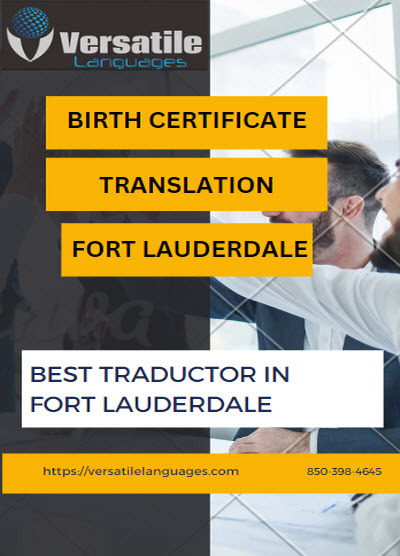
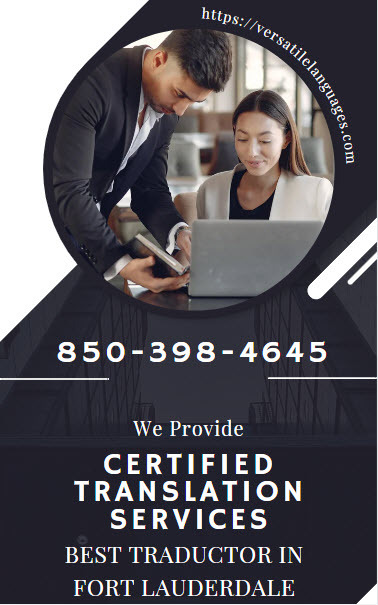
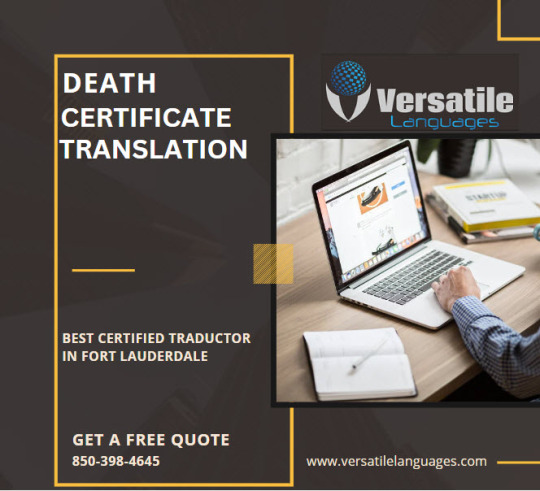
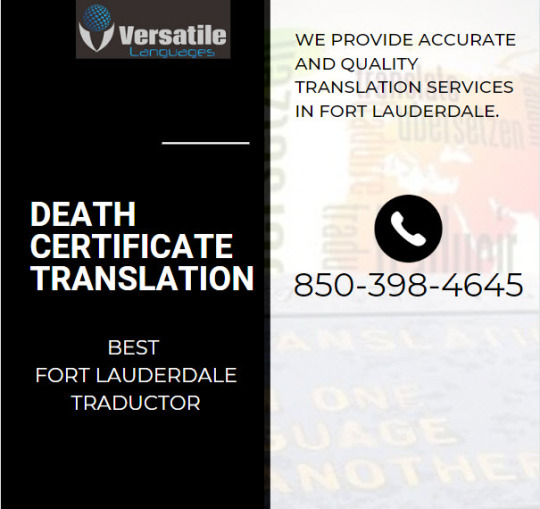
#Telephonic#interpreter#interpretation#birthcertificate#marriagecertificate#deathcertificate#divorcecertificate#uscis#DMV#certifieddocumenttranslation#certifiedtranslator#certifiedtranslators#certifiedtranslationservices#diplomatranslationservices#professionaltranslationservices#certified#translation#services#diploma#spanish#spanishtranslationservices#creole#french#Creoletranslationservices#frenchtranslationservices#spanishtranslator#frenchtranslation#frenchtranslator#traductor#uscistranslation
0 notes
Text
Professional English-Mandarin Chinese Translation Service
Learning alone without exchanges with others will lead to ignorance. 独学而无友,则孤陋而寡闻. For more information, visit https://www.morningstartranslation.com
#translation#editing#proofreading#localization#english to chinese translation#marketingtranslation#technicaltranslation#baniking#insurance#financial#certifiedtranslation#professionaltranslationservice#chinese language#linguistics#chiinese culture
2 notes
·
View notes
Text
The Significance of Certified Translation for Transcripts in New York
In a city as diverse and dynamic as New York, where many different cultures come together, it is critical to have accurate and trustworthy communication.
0 notes
Text
Precision Translations: Professional Translation Services for Documents
Use our excellent document translation services to enable smooth communication. Our expert linguists guarantee precision and cultural nuances, producing flawless translations for official, commercial, or private documents. For all of your international communication needs, receive delivery that is prompt and of unmatched quality.

#CertifiedTranslation#SpanishTranslations#TranslationGuide#LanguageServices#CertificationProcess#TranslateWithConfidence#OfficialDocuments#TranslationTips#LanguageCertification#SpanishLanguage
0 notes
Text
Demystifying the Challenges of Legal Document Translation: Insights from a Certified Translator in Singapore
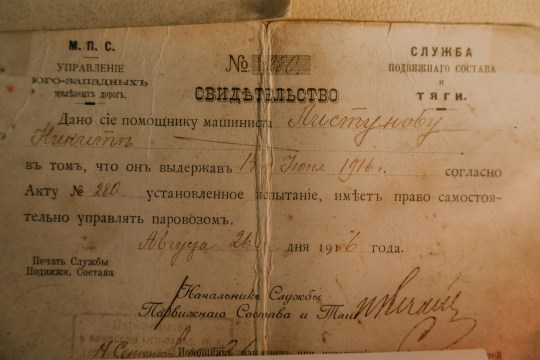
As a certified translator in Singapore, I've had the privilege of working on a wide range of translation projects. But if there's one thing I've learned along the way, it's that legal document translation is in a league of its own. In this blog post, I'll explore why certified translator is one of the most difficult fields in the translation career, especially when it comes to legal documents.
Legal document translation presents a unique set of challenges that set it apart from other types of translation. Unlike more straightforward texts, legal documents are often filled with complex terminology, convoluted syntax, and nuanced legal concepts. Any mistakes, no matter how small, can have serious consequences for the parties involved and may even result in legal disputes.
One of the biggest challenges of legal document translation is accuracy. Legal documents are binding agreements that carry legal implications, so it's crucial that the translation accurately reflects the intent and meaning of the original text. Even minor mistranslations or inaccuracies can lead to misinterpretations and potentially disastrous consequences for the parties involved.
In addition to accuracy, legal document translation also requires a deep understanding of legal terminology and concepts. Legal language is highly specialized and can vary significantly from one jurisdiction to another. As a certified translator, it's essential to have a comprehensive knowledge of legal terminology in both the source and target languages to ensure accurate translation.
Moreover, legal document translation often involves translating complex legal concepts and principles, which may not have direct equivalents in the target language. This requires not only linguistic proficiency but also a thorough understanding of the legal system and cultural context of both the source and target languages.
Furthermore, legal document translation requires meticulous attention to detail and a keen eye for nuance. Legal texts often contain subtle distinctions and nuances that must be accurately conveyed in the translation. As a certified translator, it's essential to pay close attention to these nuances and ensure that they are reflected accurately in the translated text.
In conclusion, while legal document translation may be one of the most challenging fields in the translation career, it is also one of the most rewarding. As a certified translator in Singapore, I take pride in my ability to accurately translate complex legal documents and help clients navigate the intricacies of the legal system. While the challenges of legal document translation are formidable, they are also what make the profession so fulfilling and impactful.
#certifiedtranslator#translationservices#documenttranslation#transatorinsight#Singaporetranslator#legaltranslation#translatorcorner#certifiedtranslation#spilled thoughts#textbooks#multilingualtranslation
0 notes
Text
Choosing the Right Language Translation for Apostille: A Comprehensive Guide
When it comes to legalizing documents for international use, obtaining an apostille is crucial. However, one aspect often overlooked is the language translation accompanying the apostille. Choosing the right translation is paramount for ensuring your documents are accepted abroad without any issues.
Understanding Apostille and Translation
Before delving into the selection process, it's essential to understand what an apostille is and its significance. An apostille is a certificate issued by a designated authority authenticating the origin of a public document. While an apostille verifies the authenticity of the document, a translation ensures its comprehensibility in the target country.
Importance of Accurate Translation
The accuracy of the translation is paramount. A mistranslated document can lead to misunderstandings, delays, or even legal complications. Therefore, it's crucial to choose a qualified translator who is fluent in both the source and target languages, as well as knowledgeable about legal terminology.
Types of Translation
There are two primary types of translation: certified and notarized. Certified translation involves a professional translator certifying the accuracy of the translation with their signature. Notarized translation, on the other hand, involves the translator swearing an oath before a notary public.
Factors to Consider
Several factors must be considered when selecting a language translation for apostille:
Accuracy: Ensure the translator is proficient in both languages and has expertise in legal terminology.
Certification: Choose a translator or translation agency that provides certified translations.
Notarization: Depending on the requirements of the target country, you may need a notarized translation.
Turnaround Time: Consider the time required for translation, especially if you have deadlines to meet.
Cost: Compare quotes from different translators or agencies to ensure you're getting a fair price.
Language Pairing
The language pairing is another crucial aspect to consider. Ensure the translation is from the source language of the document to the official language of the target country. If the target country has multiple official languages, select the one most commonly used for legal purposes.
Research and Verification
Before finalizing a translator or translation agency, conduct thorough research. Verify their credentials, check reviews from past clients, and inquire about their experience with apostille translations. Additionally, seek recommendations from trusted sources, such as legal professionals or government authorities.
H2: Legalization Requirements Different countries have varying requirements for document legalization, including apostille and translation specifications. Familiarize yourself with the specific requirements of the target country to ensure compliance. Some countries may require translations to be done by accredited translators or agencies recognized by their government.
https://www.pectranslation.com/
Review and Proofreading
Once the translation is complete, review it carefully for accuracy and consistency. Even minor errors can have significant consequences, so it's essential to double-check the translated document before proceeding with the apostille process. If possible, enlist the help of a second translator or a legal expert for proofreading.
Choosing the right language translation for apostille is a critical step in ensuring the legality and validity of your documents abroad. By considering factors such as accuracy, certification, language pairing, and legalization requirements, you can navigate the process with confidence. Remember to conduct thorough research, verify credentials, and review the translated document carefully before proceeding. With the right approach, you can streamline the apostille process and avoid potential complications.
#Apostille#TranslationServices#Legalization#DocumentAuthentication#CertifiedTranslation#InternationalLaw#LanguagePairing#LegalTranslations#DocumentLegalization#NotarizedTranslation
0 notes
Text
How do I go about getting my document translated?
We provide free, no-obligation quotations. Furthermore, our experienced staff are always on hand to answer any questions and provide professional advice.
Send us a pdf/photo/word document of your document by email ([email protected]) or WhatsApp (+39 340 31 46 030)or visit our Get a Free Quote section and upload your document(s).
Receive a quote.
If you are happy with our quote,…
View On WordPress
0 notes